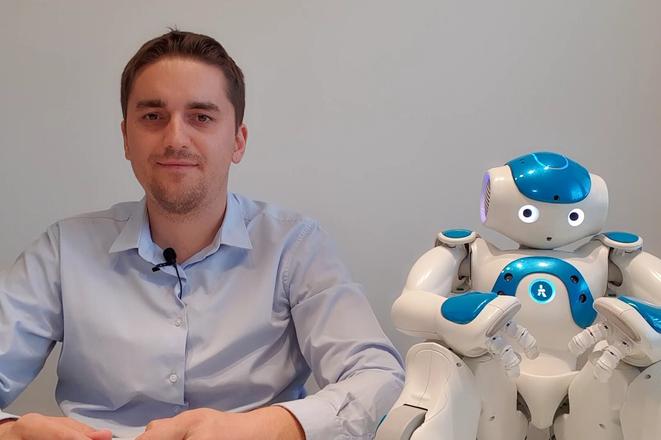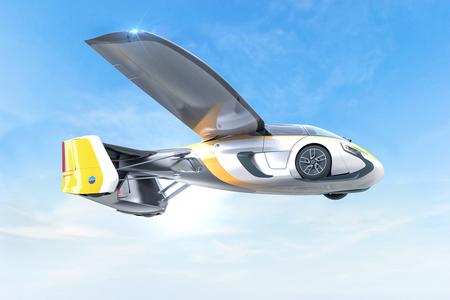Martin Spano is the author of Artificial Intelligence in a Nutshell, a book that explores the mystified subject of artificial intelligence (AI) with simple, non-technical language. Spano’s passion for AI began after he watched 2001: A Space Odyssey, but he insists this ever-changing technology is not just the subject of sci-fi novels and movies; artificial intelligence is present in our everyday lives.
The story of John Henry
An African-American folk legend from the 19th century tells an extraordinary story. During that century, there were people whose job was to punch steel nails into a rock. This created a hole in which an explosive was inserted. These explosives cleared the area for railway construction. John Henry was the best of them. One day, however, a steam drill was invented to replace these people. But John Henry resisted. He decided to "challenge" the steam drill to a duel. It was a close fight. After all, because the drilling technology was only in its diapers, John Henry won by a hair. However, under the weight of extreme effort, he fell to the ground immediately after the fight and died on the spot.
Ever since the first machines appeared, people have been constantly measuring forces with them. At first, it was in manual activities, but now artificial intelligence can also handle activities that required the human mind. It looks like there won't be a place for us in a moment. Or will there still be? And what are the differences between a human and a computer? We will introduce them in this two-part miniseries. Let's start with five in which a person has the upper hand:
1) AI has no human context
Imagine a hypothetical situation in the future. You need to catch a plane. You will call an autonomous car and tell it to take you to the airport as soon as possible. With the current state of technology, it may happen that you will "finish" there really quickly, but your vomit is all around with a police convoy behind you. What has happened? Artificial intelligence currently has no human context. He can optimise for the best value but does not understand the human context.
2) AI needs a huge amount of information to learn
How many cats does a small child have to see to know what a cat is? One, two, a maximum of several, and he has no problem recognizing another cat. How many cats do we need to show a computer to recognize them? One, two, or several billion!
3) AI cannot transfer knowledge between areas
Many of us like to relax in the garden. It takes a while, but eventually, we learn to grow beautiful ornamental plants. When we subsequently decide to grow useful plants, we are doing so very quickly, because we adapt the learned knowledge from decorative plants to useful plants. Artificial intelligence cannot do this. He can beat us in chess, for example, but the same programme doesn't even take the first step in backgammon or another game. Artificial intelligence cannot transfer knowledge between areas.
4) AI is not creative
At one exhibition of paintings, people were captivated by a particular portrait. After a moment's thought, one visitor correctly identified him as Rembrandt. However, no one could say exactly what the image was called. It was a painting called "Another Rembrandt". It was created by artificial intelligence based on scans and analysis of all available Rembrandt paintings. Artificial intelligence can similarly "resurrect" the Beatles, for example. But as is clear from the process, it is only a copy of what has already been created by man. Artificial intelligence is not yet creative in the true sense.
5) AI has no consciousness
What is the difference between your hand and a smart thermostat? Both "objects" can give information about whether the body is hot or cold. But try to pour boiling water over both objects and you will immediately find out the difference (ATTENTION: don't try this - it's just for illustration!) Unlike machines, you also "feel" the surroundings, so boiling water would hurt you. You can also think and think about things. Simply put, you are aware. Artificial intelligence will certainly not have this same awareness, at least for a very long time.
So you see, you don't have to worry about machines replacing you; you still have the upper hand over many things. However, there are also scenarios in which machines will defeat us.
We'll talk about that next time.



